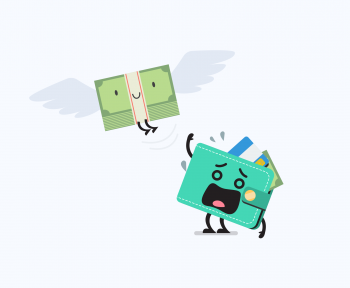Blockchain gaming, also known as Web3 gaming, is an online gaming subgenre that uses distributed ledger technology to enhance gameplay in aspects such as transparency, security, accessibility, and player agency.
What is Web3 Gaming and How Does it Work?
Cryptocurrencies and non-fungible tokens (NFTs) are employed in Web3 games, which are based on blockchains’ distributed, peer-to-peer architecture. On a blockchain, in-game assets such as NFTs and other digital assets may be held and exchanged between players without the need for an intermediary. Smart contracts make asset management and trading on distributed exchanges easier.
Decentralisation has the potential to benefit both the gaming industry and the players. Because of the increased transparency and security that blockchain provides, play-to-earn (P2E) gaming models, in which players earn bitcoin for playing and rising up in games, have developed with decentralised gaming.
Web3 gaming technologies that have helped enhance the gaming industry’s bottom line include decentralised autonomous organisations (DAOs), crypto-secured game wallets, and the metaverse.
What Sets Web3 Gaming Apart from Traditional Gaming?
Blockchain technology in Web3 gaming enables decentralised ownership of in-game assets and currencies, allowing players to earn, sell, and use these assets in settings other than the game. Smart contracts and cryptocurrency payments are also often utilised to provide a secure and transparent transaction.
Web3 games, as opposed to its centralised counterparts, are built on blockchain technology, which increases transparency, security, and user agency. All transactions are recorded on an immutable ledger using blockchain technology, and game outcomes are determined by transparent algorithms rather than centralised servers.
Unique Web3 Gaming Features
Smart contracts, which are meant to do specific operations automatically when certain conditions are met (such as a player purchasing or selling an asset), are also an important component of Web3 gaming. They supervise the purchase, sale, and exchange of virtual commodities in the Web3 gaming sector.
Web3 gaming site customers utilise digital bitcoin wallets to store their virtual items. Cryptocurrency wallets are an essential part of Web3 gaming infrastructure and a need for utilising blockchain-based services.
Players may possess and sell in-game assets like as virtual goods or currencies, which are stored on a decentralised ledger known as a blockchain. In many circumstances, NFTs or other kinds of digital assets serve as a substitute for these items.
Web3 games often promote extensive player-developer engagement and co-creation. Players have additional opportunity to contribute comments and affect the game’s development since the platforms are decentralised.
Gaming DAOs make it easier to manage gaming communities and distributed gaming platforms, which are both driven by the gamers themselves. Different types of gaming DAOs include grant DAOs, gaming guilds, incubators, and accelerators.
Web3 Gaming and Traditional Gaming
Web3 gaming has numerous benefits over traditional gaming systems, including more transparency and control.
For starters, Web3 gaming players benefit from a high level of transparency since peer hosting removes the need for a centralised third party to control or conceal information. Players may be able to get these titles with minimal difficulty. Even folks with less computer knowledge may purchase bitcoin and set up a wallet to begin playing.
In a blockchain-based game, players have greater control over their virtual property, cash, and characters, which is a huge benefit. With Web3 technology, players have greater control over their gaming experience and may claim complete ownership of digital goods with monetary value.
New ways to make money may be discovered in the unique in-game economies enabled by Web3 gaming. In pay-to-win (P2W) games, for example, players may earn real money by completing objectives in the game. As a consequence, both gamers and programmers may benefit from a more reliable and safe environment.
Another advantage of Web3 gaming is improved interoperability across games and operating systems. The assets a player collects may be utilised in several games, and the player can easily transfer or trade them across them.
Web3 game developers show how a new gaming ecosystem thrives on personalised player experiences, with an emphasis on immersive, engaging gameplay and optimum player incentives. The P2E paradigm motivates many players, and games are often designed with the player in mind.
The origins of digital assets may be tracked using blockchain. Because both creators and players can easily track the owners of particular assets and transaction histories, the game’s economy becomes more transparent.
Digital scarcity in Web3 games enables the development of rare and valuable in-game goods. This is difficult to do in more traditional gaming setups. Inflation of expensive items is feasible because designers may produce more of them and give them as incentives to players.
Creators don’t have to worry about in-game cash being too plentiful with Web3. The blockchain assures that no things may be duplicated or changed in any manner.
The Advantages of Web3 Gaming for Gamers
-
Focusing on Property Rights
The driving concepts of Web3 gaming centre upon regaining individual agency over their own data and digital footprint. As a result, users may be able to get virtual objects in games without relying on publishers or developers.
-
The Possibility of Making an Early Effect
The emergence of Web3 and the decentralised web has created various new opportunities for the gaming sector. Thanks to blockchain technology, players may now officially claim ownership of their virtual goods and game data.
-
Earning Extra Cash
The gaming business is growing as consumers spend more time online. Web-based games have evolved alongside internet economies, giving gamers more chances to monetise their passion than ever before.
-
A Diverse Selection of Games
Nowadays, the gaming sector is one of the most popular and profitable. It is also one of the most diversified, with members from all walks of life and from every part of the world. This variability, however, is not mirrored in the games themselves. Males continue to dominate games, while women and other minorities are often portrayed as second-class citizens or ignored.
-
Flexibility
The possibility for anybody with coding skills to add their own improvements to open-source games is a significant advantage. This implies that players are not restricted to the content offered by developers and may construct their own distinct gaming experiences.
The Dangers and Risks of Web3 Gaming
Despite its promise, the Web3 game sector is still new, specialised, and fraught with challenges. Both user uptake and general acceptance are issues.
Web3 is not always simple to use, particularly for individuals unfamiliar with cryptocurrencies. Developers, in collaboration with communities, should promote and enlighten players about the advantages of Web3 games.
In general, decentralised networks are safer than centralised ones, and this is the foundation of Web3 games. In Web3 games, the loss or theft of in-game goods is a significant worry, and hackers are a continuous menace. Gamers should use secure crypto wallets to store their digital assets and keep their private keys safe.
Worse, you may not receive the whole “fun” experience that a game provides. generating ensuring gamers have a nice experience while playing Web3 games is maybe less crucial than generating money. To compete with the huge Web2 corporations, Web3 game developers must focus on producing entertaining gameplay.
There is also a regulatory risk since the legal and regulatory environment of Web3 games is still emerging. There may be ambiguity in areas like as taxation, licencing, and AML rules. Both developers and players must evaluate the restrictions and risks involved.



